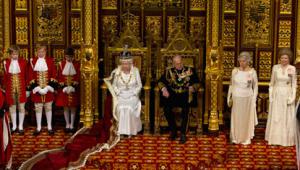The private sector, we were told last week, has so far borne the brunt of this recession. Many millions of its employees have had their pay frozen and pensions restricted, said the chancellor in his Budget speech. It’s time, he argued, for the ‘insulated’ public sector to ‘share the burden’.
In a modern reprise of the old private good/public bad mantra, much of the media have taken up the government’s refrain. Public servants have been targeted for a two-year pay freeze, increased pension contributions and - as the Office for Budget Responsibility has acknowledged - at least 600,000 job losses over five years.
Featherbedded, pampered public servants are said to enjoy ‘gold-plated’ pensions and privileged pay levels compared with their private sector counterparts.
But how true are these claims? Not at all, according to incomes data expert Alastair Hatchett (see 'Paying the price').
Contrary to urban mythology, pay freezes affected only 10%–20% of private employees in 2009/10. The fall in earnings was largely due to a temporary collapse in bonuses and some short-time working .
Estimates vary on public vs private pay. But the latest data shows that private sector settlements were around 2% in the first quarter of 2010, whereas public sector awards fell from 1% to 0.8%.
And there is considerable uncertainty about the pledge to mitigate the pay freeze for the lowest paid public workers (see 'Low paid council workers could miss out on pay pledge').
Meanwhile, only the top 5% of public sector employees earn substantial pensions. Most average around £4,000 per annum (for council workers) or £9,000 (for teachers). So why the hysteria?
The Treasury hopes to save £3.3bn a year from its public sector pay freeze. And – depending on the outcome of its pensions and pay reviews – there are yet more savings pencilled in.
But demonising the nation’s nurses, teachers, police officers and fire fighters – and pitching them against the private sector workforce – is a short-sighted strategy.
It undermines hard-won pay structures, and puts a block on further reforms. The public sector pay freeze will also widen the gender pay gap, and undermine staff morale, at a time of hugely difficult change.
As Steve Freer argues (see 'The inside track'), the chances of success in this tough fiscal climate will be a lot brighter ‘if everyone is rowing in the same direction’. Divisive reward policies that scapegoat public servants would seem to be pulling the other way.










